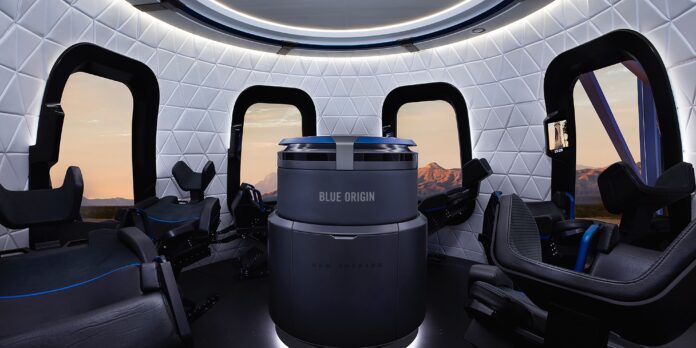Commercial space companies like Jeff Bezos’ Blue Origin and Elon Musk’s SpaceX are doubling their flights this year. And show no signs of slowing.
Jeff Bezos’ Blue Origin space flight company plans to double its commercial flights this year, with market competitors expected to follow, previewing a space tourism boom for the elite. Private space exploration companies have been launching spacecraft for years and have even bested government projects in that time. These private ventures have been so successful that the International Space Station, operational for more than two decades, is expected to be shut down before the end of this decade. Instead, NASA expects these private companies to offer more successful options. That might be because of the revenue these companies can bring in through space tourism missions.
SCREENRANT VIDEO OF THE DAY
Originally a concept reserved for movie screens, space tourism for civilians is attainable for the wealthy. Blue Origin’s first spaceflight was a success, and the winning bid sold for a resounding $28 million. The price raised from $4.8 million to $28 million in just over six minutes, demonstrating the demand for space tourism experiences and the willingness of the rich and wealthy to fork up the high prices they require. Virgin Galactic is space tourism for the masses or is at least more affordable than its competitors. The company was selling tickets to space for ‘just’ $450,000 per seat and had an extensive waitlist of people ready to take up the offer.
A report by Space News confirmed that Blue Origin is planning to expand its commercial space missions, citing significant demand. “The market is robust, it’s very robust,” Blue Origin CEO Bob Smith said at the 24th Annual FAA Commercial Space Transportation Conference. “The challenge for Blue at this point is that we’re actually supply-limited.” While plenty of people are willing to pay for flights to space, the tourism companies are limited to how many spacecraft can be built. Additionally, while launches have less operating costs than a space station or a scientific expedition, high costs and human resources are required to get these flights off the ground.
Blue Origin Is Developing New Vehicles For Space Tourism
To successfully increase the number of space missions per year, the company looks to develop reusable launch systems. However, Blue Origin is aware that while reusable launch systems would mark the crux of the space tourism boom — it would increase the number of missions and decrease operating costs — it has to be done safely. “That’s the one that we have to be thoughtful about because that’s the place where spaceflight has gotten into trouble,” Smith said. “We’ve spent a lot of time thinking through how, methodically, to check out a reusable launch system.” With a new spacecraft in the works, and reusable launch technologies looming, the number of space tourism missions could increase twofold.
Other companies are expected to follow suit because these missions are incredibly profitable for space exploration companies. While missions for scientific exploration can cost hundreds of millions, such as space stations, space tourism missions require fewer resources. Moreover, wealthy tourists have expressed the desire and means to pay multi-million dollar sums to experience space travel. For those reasons, the big three in space travel — Blue Origin, SpaceX and Virgin Galactic — will usher in the space tourism boom in the years to come.
Source: Space News
About The Author
Brady Snyder
(52 Articles Published)
Brady Snyder is a journalism and computer science student at St. John’s University. Brady is knowledgable in all things technology, hardware and software, with a concentration in Apple and MacOS.
More From Brady Snyder










